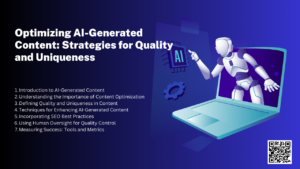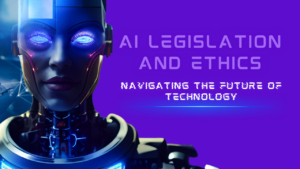Artificial Intelligence (AI) has transcended its origins in tech labs and science fiction, embedding itself into nearly every facet of modern life. From generating artwork and poetry to diagnosing diseases, AI’s pervasive influence is reshaping societal sectors and sparking heated debates. This article explores AI’s role in art, poetry, medicine, and more, presenting perspectives from both proponents and critics while emphasizing its profound cultural and social impact.
- Introduction: AI's Growing Influence in Modern Society
- AI in Art and Creativity: Redefining the Boundaries of Imagination
- AI in Medicine: Revolutionizing Healthcare
- Perspectives on AI: Proponents vs. Critics
- Cultural and Social Impact: How AI is Shaping Society
- Conclusion: Balancing Innovation with Responsibility
Introduction: AI’s Growing Influence in Modern Society
AI is no longer a distant dream—it’s a reality driving innovation across industries. Its ability to analyze data, recognize patterns, and make decisions has positioned it as a transformative force in areas like healthcare, creative arts, and social interactions. But as AI’s reach expands, so do the questions: How does it enhance our lives? What risks does it pose? Proponents celebrate its potential to solve problems and boost efficiency, while critics warn of ethical challenges and cultural erosion. Below, we dive into AI’s applications, benefits, and controversies, focusing on its societal implications.
AI in Art and Creativity: Redefining the Boundaries of Imagination
How AI is Used in Art and Poetry
AI is revolutionizing creativity. In art, tools like DALL·E and Midjourney generate paintings, sculptures, and digital works from text prompts, blending styles learned from vast datasets. In poetry, AI models like GPT-4 craft verses that echo famous poets or invent new forms of expression, making creativity more accessible than ever.
- Real-World Example: The AI-generated “Portrait of Edmond de Belamy” fetched $432,500 at Christie’s, blurring lines between human and machine-made art.
Benefits of AI in Creativity
AI brings tangible advantages to the creative world:
- Accessibility: Non-artists can create professional-grade art and poetry using AI tools.
- Inspiration: Artists use AI as a collaborator to spark ideas or refine their work.
- Innovation: AI produces novel combinations of styles, expanding artistic horizons.
- Case Study: Poet Jeylan Mammadova partnered with AI to co-author a poetry collection, merging human emotion with machine-generated metaphors.
Criticisms and Concerns
Not everyone embraces AI’s creative role:
- Authenticity: Critics argue AI lacks the emotional depth of human creators.
- Originality: Trained on existing works, AI may unintentionally replicate rather than innovate.
- Human Value: Some fear AI could overshadow human artists, commodifying creativity.
- Expert Opinion: “AI can mimic, but it cannot feel. True art requires a soul,” says art critic Elena Rossi.
AI in Medicine: Revolutionizing Healthcare
Applications in Diagnosis and Treatment
In healthcare, AI is a powerhouse. Machine learning analyzes medical images, predicts outcomes, and assists in surgeries. Tools like IBM Watson Health and Google’s DeepMind excel at diagnosing conditions such as cancer and diabetic retinopathy, often surpassing human accuracy.
- Example: A Nature study showed an AI system outperformed radiologists in detecting breast cancer from mammograms.
Advantages of AI in Medicine
AI’s medical contributions are impressive:
- Speed and Precision: It processes data rapidly, enabling faster, more accurate diagnoses.
- Cost Efficiency: Automation reduces healthcare costs by streamlining routine tasks.
- Access: AI extends care to remote areas with limited medical resources.
- Success Story: In rural India, AI-powered mobile apps help doctors diagnose and treat patients, boosting healthcare access.
Ethical and Practical Concerns
Challenges temper AI’s promise in medicine:
- Data Privacy: Patient data usage raises security and consent issues.
- Bias: AI can reflect biases in its training data, risking unequal care.
- Accountability: Errors by AI systems complicate questions of responsibility.
- Expert Opinion: “AI should augment, not replace, human judgment in medicine,” cautions bioethicist Dr. Sarah Thompson.
Perspectives on AI: Proponents vs. Critics
Proponents’ Views on AI’s Potential
AI’s advocates see it as a game-changer:
- Problem-Solving: It tackles global challenges like climate change and poverty with data-driven insights.
- Efficiency: Automation frees humans for creative and strategic pursuits.
- Enhancement: AI amplifies human abilities, making us more capable.
- Quote: “AI is the new electricity. It will power the next industrial revolution,” says AI pioneer Andrew Ng.
Critics’ Concerns About AI’s Impact
Skeptics highlight risks:
- Job Displacement: Automation threatens livelihoods, especially in repetitive roles.
- Bias and Inequality: AI can deepen social divides if not carefully managed.
- Human Element: Fields like art and healthcare may lose their personal touch.
- Quote: “We must ensure AI serves humanity, not the other way around,” warns ethicist Dr. Michael Sandel.
Cultural and Social Impact: How AI is Shaping Society
AI’s influence extends beyond industries, reshaping culture and daily life:
- Personalization: Algorithms tailor media on platforms like Netflix and social media feeds.
- Communication: AI chatbots and assistants like Siri integrate into our routines.
- Education: Tools like Duolingo use AI to customize learning experiences.
- Example: Duolingo’s AI adapts language lessons to individual users, enhancing retention.
Yet, cultural shifts bring challenges:
- Echo Chambers: AI can reinforce biases by curating like-minded content.
- Privacy Loss: Constant data collection fuels surveillance concerns.
Conclusion: Balancing Innovation with Responsibility
AI’s pervasive role in society—from art and poetry to medicine—is undeniable. It offers remarkable opportunities to innovate and improve lives, yet it also poses ethical, cultural, and social challenges. By embracing its potential while addressing its risks, we can ensure AI enhances rather than undermines human values. As AI continues to evolve, thoughtful stewardship will determine whether it becomes a tool for progress or a source of division.




